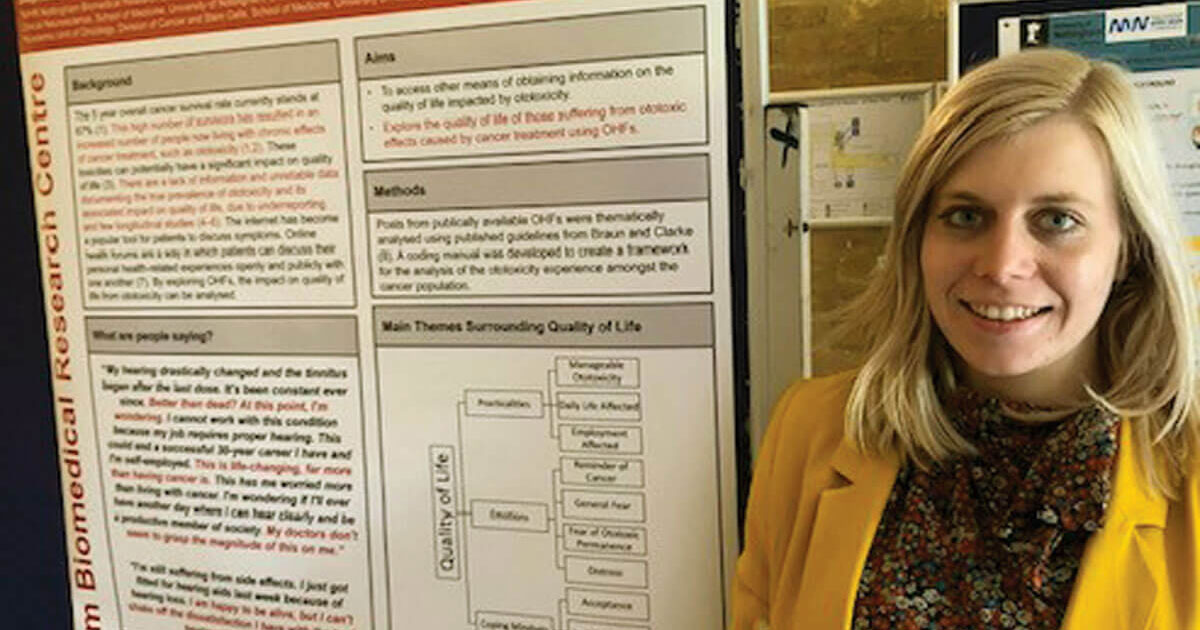
Stephanie Pearson, Research Manager, Cripps Health Centre, UK, has published an important article about platinum-based chemotherapy, tinnitus and hearing loss.
I urge all physiotherapists and other health professionals to take a few minutes and read this.
The link to the full article is here: Platinum-based Chemotherapy, Tinnitus And Hearing Loss.
It’s based on the work of David Baguley and his team at University of Nottingham, in which they were considering the effects of platinum-based chemotherapy on hearing and tinnitus.
I’ll include the introduction and summary below and then add a few thoughts, but hope you visit the link above to read the article in full and share it.
Lasting effects of cancer treatments
Fortunately, the five-year survival rate of adult cancers is increasing. However, we are seeing for the first time the lasting effects of cancer treatments on people. As more people live with the long-term effects of treatment, such as chemotherapy, it is imperative to understand the impact it has on quality of life.
Our research team studies the impact of tinnitus and hearing loss caused by platinum-based chemotherapy and how this effects quality of life in people living with and beyond cancer (LWBC) [1].
“The impact of chemotherapy on the audio-vestibular system is a relatively new field of research and, as such, patients are often unaware and unprepared”
It is well known that hearing loss and tinnitus can cause distress, isolation, anxiety and depression in the general population. However, the addition of other comorbidities, both psychological and physical, caused by cancer and the subsequent treatment can exasperate these issues. Furthermore, it is difficult to assess and explore how hearing loss and tinnitus impact quality of life in those with cancer, without accounting for the confounding factors such as other side effects and worries.
Impact of platinum-based chemotherapy, tinnitus and hearing loss should not be neglected by clinicians and researchers
Although the main aim of cancer treatment is survival, the ototoxicity encountered after PBCT, which is often permanent and not preventable, should not be neglected by clinicians and researchers.
It is important we direct more of our attention towards this topic to enhance the care of patients and help them adapt to life with hearing loss, tinnitus and imbalance.
We should know exactly which aspects of life are compromised in those LWBC so that tailored interventions can be applied to situations where help is needed the most.
Pearls and oysters
In summary, platinum-based chemotherapy is toxic to the vestibular system in the inner ear.
This means your patient will not present with vertigo because both ears have been affected by the chemotherapy.
Hence, the patient will have difficulty balancing with eyes closed, moving around in the dark and on uneven surfaces – gait ataxia.
On top of this, dynamic gaze stability is affected too, resulting in oscillopsia.
Therefore, it is imperative to check the vestibulo-ocular reflex (VOR) using the head impulse test.
And, finally, take note of hearing loss and tinnitus because there is no vertigo per se.
